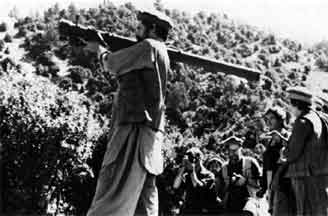Being a distinguished member of such an ignorant community, Clarisse appreciates small details around her. As Clarisse parades her unique personality to Montag, she subconsciously inspires him to see the beauty in life as she does. At first, Montag sees Clarisse as a peculiar female with inimitable character. However, by spending more time with her, he comes to welcome her eccentric and schmaltzy character. To Montag, Clarisse is somewhat opposite of the society, as he spends time with her he appreciates aspects of life absent in his society. What is Montag’s society against and a key part of his life? Book reading. Through Clarisse, Montag develops an intriguing interest in books and knowledge. This increasing interest propels Guy to read and act against book burning. His fascination in literature assists him to distinguish the difference between the richness in books written in previous generations in contrast to the dullness and ignorance of the society he lives in. Knowledge versus ignorance, a theme of the book, is present due to Clarisse’s distinction from society reflecting on fireman Guy Montag.

Even today, the world lacks of people who look at the little details in life. Having Clarisse as a neighbor who collects bugs and flavors the succulent rain would make anyone adore life more than they already did. Clarisse’s loving personality produces Montag’s new surge of emotion. She unveiled the sentiment in Montag by making comments such as: “People don’t talk about anything. . . . They name a lot of cars or clothes or swimming pools mostly and say how swell! But they all say the same things and nobody says anything different from anyone else.” The inertness of society now stands out in Montag’s eyes because he now feels passion and interest as opposed to being satisfied by simple pleasures. Montag then demonstrates another theme of the book, emotion versus dullness. This theme is extraordinarily displayed when Montag reads “Dover Beach” to Mildred and her lifeless friends Mrs. Phelps and Mrs. Bowles. Montag lets emotion out of his spirit by expressing himself to boring women who underestimate and fear freedom of expression. Clarisse unintentionally gave Guy the desire to feel. She made Montag’s mind swirl with emotion ever since she asks him, “Are you happy?”
Though Clarisse’s appearance is brief, she indirectly points out censorship to Montag. She tells Montag about how school lacks real content, education or interaction as well as how she is considered anti-social when everyone else is so fast-paced and impersonal… All these minute details cause Montag to realize how censored society really is. Clarisse freely expresses her emotions to Montag as a book would; they both share unique qualities which are not accepted in Guy’s society. This symbolic similarity between Clarisse and books causes Montag to question the burning of books. He fears that burning books is like Clarisse’s death, a sudden end to beauty. Once Montag grows lucid and realizes how oppressive and hedonistic his society is, he decides to fight on behalf of the oppressed, on behalf of the books. Clarisse makes Montag a soldier against book banning and censorship of education, books, and philosophy.
Clarisse’s love of life sparks Montag’s motivation to learn, to challenge society, to be captivated by emotion and act against censorship and ignorance. Clarisse might not have survived to see Montag change, but what she said and did inspired Montag to love life and challenge a lifeless society. Clarisse triggered Montag to be knowledgeable, alive and a threat to censorship.

